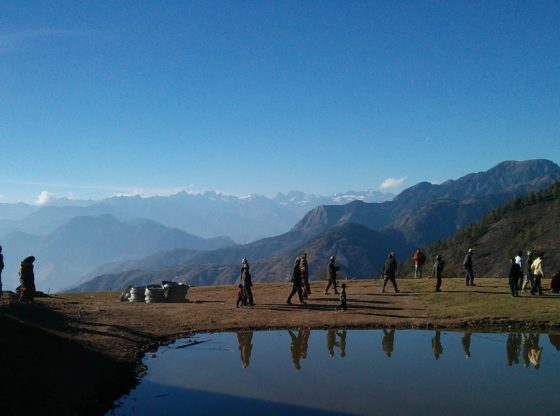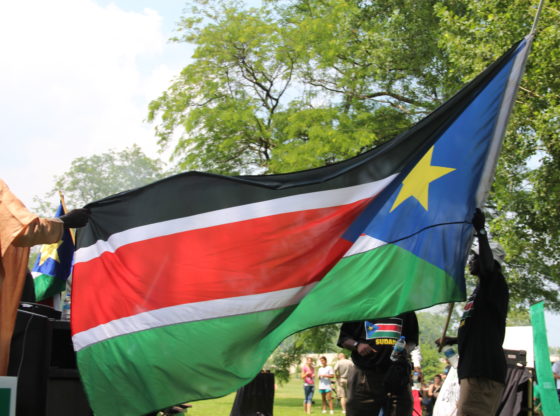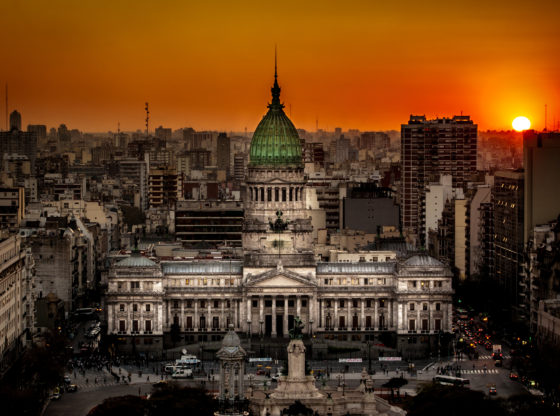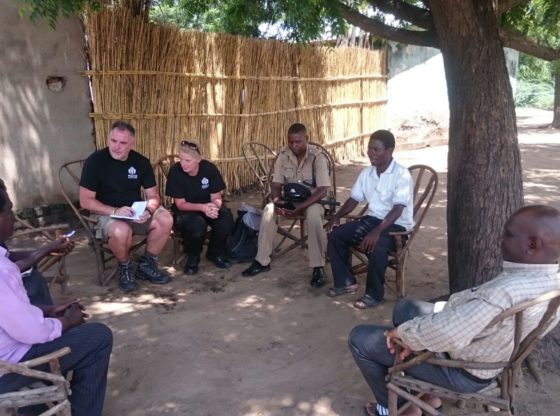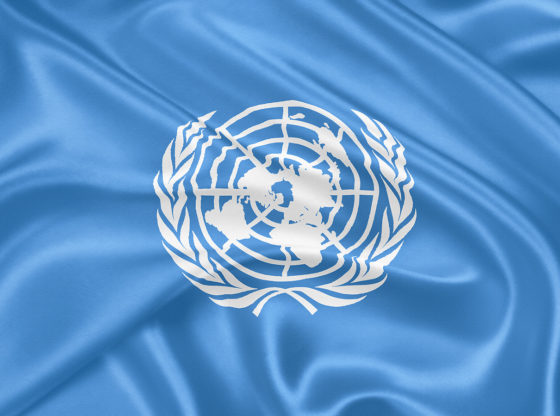How Not To Catch Cancer: a riposte to Yuen Yuen Ang’s ‘Harnessing Weak Institutions to Build Markets’.
by Roy Lee
In her recent blogpost ‘Harnessing Weak Institutions to Build Markets’, Professor Yuen Yuen Ang essentially argues that rather than trying to build strong and good institutions based on Western norms, developing countries (the global South) should build markets first based on whatever weak institutions they have at hand, as markets will lead to better institutions, which will then go on to build better markets. My riposte to her thesis is set out below. Each section begins with an extract from her blogpost (highlighted in bold), followed by my riposte.
Poor countries, lacking resources and capacity, struggle to actualize good institutions and governance within a short time.
It’s a fallacy that you need to be rich to put in place good governance. I spent two decades embedded in governments, ranging from Afghanistan to New Zealand, working closely with senior government officials, Ministers and Presidents. Governments in less-developed countries ( henceforth: LDCs) fail to establish good institutions and good governance not because of lack of resources and capacity, but simply lack of political will.
For example, many countries in the Pacific Islands have an independent judiciary, a free press, strong rule of law, and the ability to vote out their government as frequently as they hold elections. A fine example is the Cook Islands - population 21,000. In Kiribati, the President is elected by universal suffrage from candidates put forward by each newly-elected Parliament. People in these countries know what to demand of their governments and will take no less.
The basic principles of good governance are easy: government needs transparency and accountability; accountability needs oversight; and oversight institutions need independence from government. It’s not rocket science and need not cost much more than a competent civil service. Checklists and international standards of Accountability, Transparency, and Independence of Oversight can be taught, understood and easily applied. These range from the bare-bones IBA Minimum Standards of Judicial Independence (1982), to the more comprehensive Rule of Law Checklist of the Venice Commission (2016). No poor country can adopt best practice, or transform a one-party state into one with strong democratic governance institutions, overnight. But it is possible to implement ‘good practice’, and to work progressively towards best practice. The basic pillars of democratic governance - freeing up the press and the internet, ensuring that trials are conducted fairly by an independent and impartial tribunal, and ensuring that deaths in custody are always investigated by bodies or persons independent of the custody institution - do not require a big bureaucracy to run.
The real difficulty is that the leaders of LDCs are loath to give up their power. If you control the government of a poor country and you have the power to allocate resources such as land, licences, or lucrative concessions for forestry or mineral resources, extract ‘rent’ for those (the dark side of the rentier economy) and keep a fair chunk of it yourself, why would you want curbs on that power? Or curbs on your ability to appoint and fire the judiciary, decide when to prosecute or arrest someone, or control and shut down criticism in the press or on the internet?
It has become a creed in global development that “good” institutions, such as rule of law, private property rights, and formal accountability, are necessary for economic success.
Another fallacy. Malaysia in the 1980s and 1990s clocked between seven and nine percent GDP growth annually, and was touted as one of the ‘Asian Tigers’ - all while the independence of the judiciary was being decimated, the media strictly controlled, and opposition leaders were locked up for up to two years without trial. Singapore and China also clearly disprove the creed. A study of ancient history would show that the worst tyrants often made the best ‘economies’. Empires were rich, not because they played nice and had good institutions and accountability, but because they exploited others (including the weakest in their own societies) in the single-minded pursuit of filling their own coffers.
In the past decades, the global development establishment has invested tremendous efforts to improve governance and spread best practices in the impoverished South, hoping that this would lay fertile ground for economic growth. Yet after numerous reforms, the results have been largely disappointing.
Billions were poured into poor countries ostensibly to improve the rule of law and governance. Much of this went to wasteful projects because donors needed the ‘consent’ of the governments concerned, or were driven by the donor’s own agenda (which may not necessarily accord with ‘good governance’). As mentioned, once in government, most LDC leaders are extremely loath to implement meaningful and durable reforms that curb their powers.
The only way to get the turkeys to vote for Christmas is irresistible pressure from within their population or from without, via the international community.
As most LDCs with poor governance have a persistent habit of harassing, locking up, torturing, or killing those amongst their citizenry who demand accountability, transparency and democratic reforms, or dare to highlight corruption by senior public officials, that really leaves the international community with the obligation to act.
J’accuse! The international community never seriously backed any moves to improve governance and accountability in LDCs. The foreign policy of most rich countries is dominated by self-serving considerations (mostly the interests of multi-national or transnational corporations), not by the wish to promote democracy or good governance in LDCs (unless of course this happens to coincide with their short-term self-interest).
For decades, the US State Department put out annual human rights reports on countries in the impoverished South - but I have yet to lay eyes on a Blacklist of Governments that Will Not Implement Good Governance, in the same way that I see blacklists and ‘white lists’ for Anti-Money Laundering and Tax Evasion today. Or lists of terrorist groups for financial sanctions.
If every single leader and government that refused to put in place or allow basic institutions like an independent and impartial judiciary, independent media, and free and fair elections, or that imprisoned people without fair trial or due process, were put on a blacklist and sanctioned, we would see good governance and the rule of law in the global South spring up very quickly.
Just as offshore finance centres scramble and work overtime to sign up to Tax Information Exchange Agreements to avoid being blacklisted, you would see LDCs signing up to and implementing serious Governance Reforms very quickly if failing to do so put them on a blacklist for aid, trade, and investment. and put their leaders on movement and financial sanctions (no more shopping trips to Paris and London!).
My message to the international community: “Try harder, you weren’t even properly trying.”
One problem is that poor societies lack capacity to implement best practices. For the sake of looking good and qualifying for conditional aid, they may copy the formality of good institutions without actually practising it. The result is a persistent gap between formality and reality, which reinforces cynicism… imposing best practices has been “a root cause of the deep problems encountered by developing countries.”
It is true that imposing models directly imported from more advanced democracies can create a lot of problems for developing countries. However, most international standards were developed to fit across a whole gamut of different types of countries and traditions, not a one-size fits all taken from say, the US or UK model of government. These standards are wide and general enough to take into account civil law or common law traditions; rich countries or LDCs; small countries or large countries; religious or not-so religious countries; Christian, Moslem, Hindu, Buddhist or other traditions; old democracies or emerging democracies; interventionist welfare governments or neoliberal governments; presidential or prime-ministerial democracies.
What the standards do not resile from are the basic principles of good governance; for example, the Government-Accountability-Oversight-Independence sequence. And of course, you need to have basic human rights - for example freedom of speech, and freedom from arbitrary arrest and detention - to have real accountability and democratic governance.
The trick is to understand and apply these international standards in a manner which complements the institutions and traditions in the country concerned as much as possible, without compromising the basic principles. This needs some finesse, but is doable and need not be extravagantly expensive.
Harness weak/wrong/backward institutions to build markets; emerging markets stimulate good institutions; good institutions preserve markets.
There is an intuitive logic to this Markets-Institutions-Better Markets argument (‘MIBM’).
The answer lies in primary school mathematics. In the classical tradition, you get four points out of five for applying the correct process and formula - and only one for the correct answer. Why? You can stumble onto the answer by sheer luck, or you can sneak a quick look at your fellow student’s exercise book. But unless you understand and apply the correct process, you won’t be able to repeat your ‘lucky guess’ indefinitely. In other words, your progress is not sustainable.
In the same way, a benevolent dictator can lead a country towards nine percent annual GDP growth for a decade or two, and thrill the economists no end. It’s not difficult if you’re climbing from a low baseline and open up a closed or narrow economy to global trade and investments. China, Singapore, Malaysia, the USA, and Australia all did this at one point in time, weak institutions or not.
But unless the country gets its institutions and governance right, sooner or later the party ends. And the hangover will be nasty. Recently Malaysia - the Asian Tiger of the 1990s - ‘celebrated’ its 60th birthday, with “its people subdued and … a government widely regarded as a kleptocracy”. A large country and market like China can delay this ending longer than most - but again, sooner or later the party will end.
The history of huge and powerful empires over the centuries bears testimony: typically the Founding Emperor is a wise and a great leader, his heir does alright and benefits from the wealth, markets, and ‘institutions’ created by the Founder. But the third or fourth generation Emperor is usually weak, decadent and corrupt. He is drunk or drugged most of the time, spends or gambles away the kingdom’s wealth, and extracts more and more taxes from his subjects to fund his expensive lifestyle. Typically, the Empire falls apart: it disintegrates into impoverished fiefdoms, or there is a massive rebellion; it is weakened by the lack of public support, or it is invaded and overthrown by an enemy.
The other counter to MIBM is this: the process of building markets from weak institutions irrevocably alters the nature and focus of participating institutions.
The ‘weak’ institutions that control or regulate the market never stay weak – they become strong but bad institutions, focused on extracting ‘rent’ from the market, in non-transparent and corrupt ways. The party and government machinery that grows in the absence of good/strong institutions progressively build their own mini-empires to enrich themselves. And of course, there are the Little Napoleons (as they are known in Malaysia) who sit in their own fiefdoms in every government office with the power to allocate licences, contracts, or other resources and ‘favours’.
Typically, trade, investment and markets feed these corrupt institutions like cancer cells for decades until the oil runs out, oil prices collapse, commodity prices slump, the global economy slows down, or there is simply nothing left to steal in the domestic economy. Only then will pressure build from within, as people come to their senses and start clamouring for accountability and good governance.
By that time, it’s often too late: these ‘cancer cells’ have co-opted and been co-opted by the business elites, taken over the body politic, wrapped their tentacles all the way around crucial institutions (e.g. the military, police, universities, prosecutors, judges, even electoral commissions), and built a war chest of billions of dollars to bribe their way out of any electoral moves to get rid of them.
It would take something of a revolution or popular uprising to progress to the next ‘stage’ of development (i.e. building strong democratic institutions). Even if it were possible to recover from the damage caused by the ‘cancer’ of bad institutions, major surgery would be needed in the form of governance and constitutional reforms, as well as decades of peace and stability, to recover from that cancer. By intent or neglect, these strong/bad institutions would have cultivated a mindset and political culture that would take generations and decades to heal from and overturn.
As a humble citizen in one of these ‘emerging markets’, if you are lucky enough to get rid of a strongman leader (like Mubarak in Egypt), more likely than not you will end up with another, worse one.
First - all the key institutions of the country (the cancer cells) and the business and political elites will hold on to power with a ‘death’ grip (your death if necessary).
Second - after you ‘win’ by forcing a change of government (as in Egypt’s Tahir Square), more likely than not you won’t know what reforms to ask for because your national universities would never have taught you about political science, liberal democracy, human rights, the rule of law, or the principles of accountable government. Any books discussing those issues in a meaningful way would have been banned and the internet long censored.
Third - you probably won’t know how to articulate political demands effectively, or how to work with other parties to achieve political consensus. This is because anyone who did so in the past were probably hung by their thumbs until they changed their minds.
Finally - the international players that helped to keep the strongman in power through trade, investments, and aid won’t turn overnight into genuine cheerleaders for your new democracy. They are really interested in one thing: are you going to support whatever self-interests motivated them to support the strongman? These could be ‘markets’, neoliberalism, a military base, allowing them to fly killer drones over your territory, letting them keep their oil/mining/business concessions, or assisting a neighbouring ally of theirs. Woe betide you if you do not!
Despite my apparent scepticism, the viability of MIBM really depends on your metric of progress or ‘development’. If you measure it by GDP growth, it’s true you can achieve a lot in the short to medium term with weak/backward/wrong institutions. But if you are after sustainable development, and you want to be able to buy milk powder for your children without fearing that it might be padded out with deadly substances because of weak/wrong/backward institutions, you may be out of luck.
Sadly, of the 17 Sustainable Development Goals approved by the UN General Assembly, only one or two touch on good governance. All the rest focus on desired outcomes, as opposed to process. LDC countries make up the majority of the General Assembly and my guess is few LDC governments were interested in good governance. Good governance in LDCs would also make it extremely difficult for the governments of rich countries to pursue their self-interests, when these do not coincide with the interests of the people concerned. It’s far easier for everyone to agree on outcomes – obviously all our citizens should have a decent income, be healthy, well-cared for, have access to justice, and live in a clean and healthy environment! The fact that no one knows who is picking up the bill for delivering those outcomes is extremely worrying (a bit like people in the UK voting for Brexit without seeing the divorce bill).
Good governance is an easier and more sustainable way to ensure that states progressively achieve these outcomes. Like primary school mathematics: get the process and formula right, and the right outcome will follow. But it does require turkeys to vote for Christmas, with a bit of arm-twisting if necessary. The governments of rich countries will need to put aside their selfish short-term interests for the sake of longer-term self-interest and a common humanity whose interests are more closely entwined now than ever before.
Roy Lee is a Malaysian-born, New Zealand qualified barrister and solicitor. He lectures and writes on democratic governance and design standards for legislation based on his experience working and consulting in countries ranging from Afghanistan to New Zealand. His interests include foreign policy, international development and law and economics. Contact Roy at [email protected]
Feature image:demonstration in March 2015 against Brazilian government corruption outside of the Congreso Nacional building in Brasília, Brazil. Image: José Cruz/Agência Brasil [CC BY 2.0]




